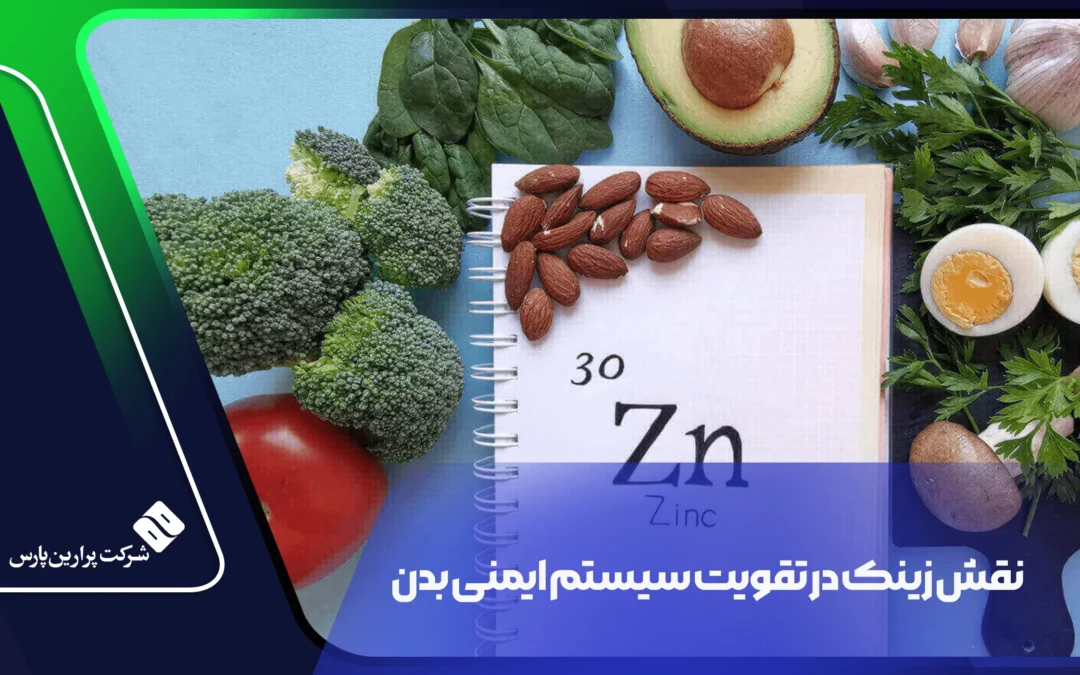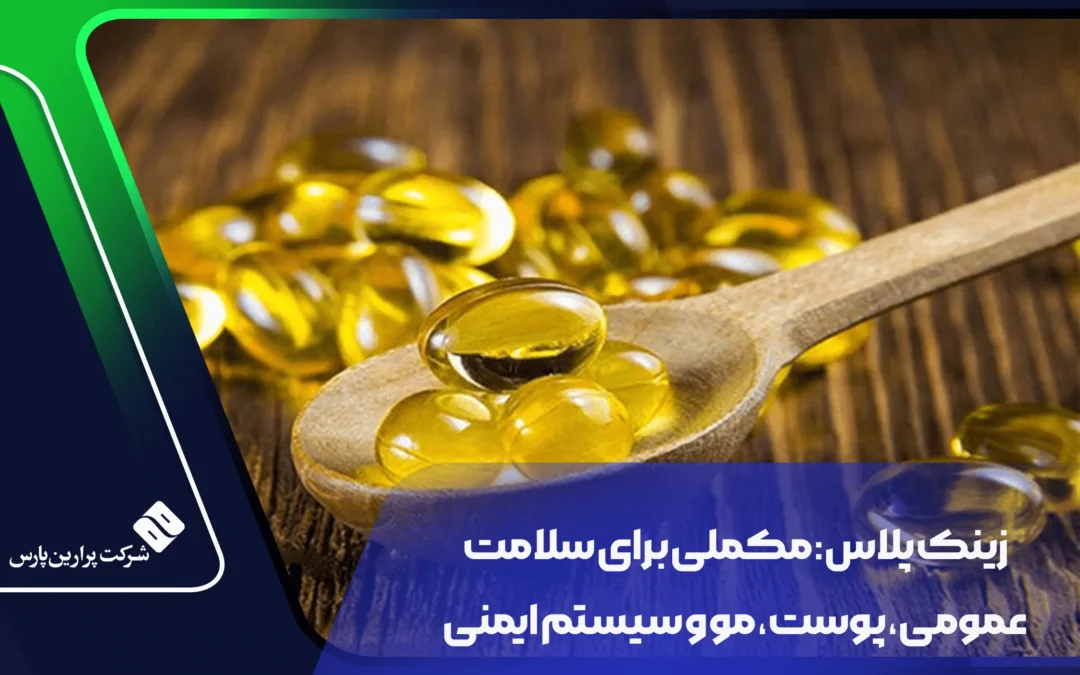
The role of zinc in strengthening the immune system
Zinc is an essential mineral that has numerous effects on overall health. One of its most important roles is enhancing the immune system. This mineral acts as a cofactor in many enzymes that contribute to the production and function of immune cells. Therefore, zinc deficiency can weaken the immune system and increase the risk of infections. In this article, we will explore the vital role of zinc in boosting the immune system and its importance in maintaining overall health.
Zinc’s Role in Strengthening the Immune System
Zinc plays a direct and undeniable role in various biological processes in the body. One of its key functions is supporting immune system performance. This essential element serves as a cofactor in over 300 enzymatic reactions in the body, which are crucial for metabolic processes and the production of immune cells such as lymphocytes and macrophages. As a result, zinc deficiency can lead to impaired immune cell function and increased susceptibility to infections.
Zinc’s Effect on Enhancing Immune Cell Function
Research has shown that zinc can:
- Strengthen immune cell function
- Reduce the risk of infections
Studies conducted on elderly individuals and those with chronic illnesses have demonstrated that zinc supplementation improves immune responses and lowers the risk of infectious diseases. Additionally, zinc acts as an anti-inflammatory agent, helping to regulate and balance the body’s inflammatory responses. This is especially important in conditions where the immune system becomes overactive.
Zinc’s Role in Protein and DNA Production
Zinc plays a crucial role in protein and DNA synthesis, which aids in the growth and proliferation of immune cells. This mineral also has a positive impact on antibody production. Antibodies are responsible for identifying and eliminating pathogens, meaning zinc can help strengthen the body’s immune response.
Recommendations for Zinc Intake
Given its key role in boosting the immune system, ensuring an adequate intake of zinc through diet or supplements can help maintain overall health. Zinc is found in foods such as red meat, poultry, fish, eggs, and seeds. However, zinc supplementation should be taken under medical supervision to avoid adverse effects from excessive consumption.
Zinc’s Role in Regulating Sex Hormones and Insulin Control
Another important function of zinc is its role in producing and regulating sex hormones and insulin. This mineral acts as a necessary cofactor in the synthesis of essential hormones such as testosterone and estrogen.
Zinc and Sexual Hormone Health
Studies indicate that zinc helps regulate testosterone levels in men. Zinc deficiency can lead to decreased testosterone production, resulting in fertility issues, reduced libido, and erectile dysfunction.
In one study, men who took zinc supplements showed significant improvements in testosterone levels and sexual performance. Additionally, zinc plays a crucial role in sperm production and can enhance male fertility.
Zinc’s Effect on Insulin Regulation
Insulin is a hormone responsible for blood sugar regulation. Zinc helps in the production and storage of insulin and enhances insulin sensitivity. Therefore:
- Zinc deficiency may increase the risk of type 2 diabetes
- Zinc supplements can aid in better blood sugar control and reduce diabetes-related complications
Furthermore, zinc supports optimal immune function in diabetic individuals.
Recommendations for Zinc Intake
Zinc is an essential supplement for supporting the production of sex hormones and insulin. Adequate zinc intake through diet or supplements can help maintain hormonal and metabolic health. However, it should be consumed under medical supervision to prevent side effects from excessive intake.
Zinc’s Role in Enhancing Taste and Smell
Zinc plays a crucial role in the proper functioning of various body systems, including taste and smell perception. These senses are vital for detecting food flavors and odors, and zinc is essential for biochemical processes related to these sensory functions.
Zinc’s Effect on Taste and Smell Receptor Proteins
Research has shown that zinc is involved in the production and function of taste and smell receptor proteins found in sensory cells. Zinc deficiency can impair these proteins, leading to a diminished sense of taste and smell. This issue is more prevalent in the elderly and individuals with chronic illnesses.
Zinc and the Restoration of Lost Sensory Functions
Various studies have demonstrated that zinc supplementation can help restore taste and smell in individuals who have lost these senses. For example, people who experienced taste and smell disturbances after respiratory infections or viral illnesses like COVID-19 may benefit from zinc intake to recover these senses.
Immune System Support and Its Indirect Impact on Taste and Smell
Zinc also enhances immune function, which helps reduce infections and inflammation that could impair taste and smell.
Recommendations for Zinc Intake
Ensuring sufficient zinc intake through diet or supplements can help maintain and enhance taste and smell perception. However, zinc consumption should be monitored by a healthcare professional to avoid any adverse effects from excessive intake.
Zinc and Brain Health
Zinc plays a vital role in optimal brain function. It contributes to neural signal transmission, improved learning, memory enhancement, and mood regulation. Zinc deficiency has been linked to cognitive disorders such as Alzheimer’s disease and dementia.
Zinc’s Role in Growth and Development
Zinc is essential for cell growth and division. It aids in DNA and protein synthesis, which are crucial for cell and tissue development. Zinc deficiency during childhood can lead to stunted growth and developmental issues.
Additional Benefits of Zinc
- Strong Antioxidant Properties: Zinc protects cells from damage caused by free radicals, supporting cellular health.
- Improved Thyroid Function: Zinc is essential for optimal thyroid gland function.
- Reduced Cancer Risk: Studies suggest that zinc may help lower the risk of certain cancers by inhibiting cancer cell proliferation.
Conclusion
Zinc is an essential mineral that plays a crucial role in various biological processes. Zinc deficiency can lead to multiple health problems. To ensure adequate intake of this vital nutrient, consuming a balanced diet rich in zinc-containing foods such as red meat, seeds, and seafood is recommended. Therefore, maintaining proper zinc levels is particularly important for enhancing immune function and overall health.



